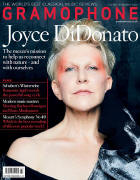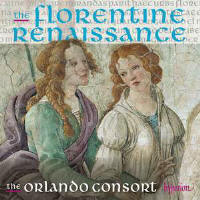Texte paru dans: / Appeared in: |
|
|
Outil de traduction |
|
|
Reviewer:
Edward Breen The programme opens auspiciously with Dufay’s motet Nuper rosarum flores (‘Garlands of roses’), which can be seen both as a last great gasp for medieval isorythm, traceable back to Machaut, and as the apex of that tradition. Either way, it’s a grand and complex knot of symbolism honouring Pope Eugene and the dedication of Florence Cathedral. Compared with Pomerium’s recording (Archiv, 10/97), which used a broader, choral approach, or the Huelgas Ensemble’s instrumental support (Harmonia Mundi, 11/00), the four solo voices of The Orlando Consort bring a brisk clarity to the textures, but the two interlocking plainchant voices fail to underpin the motet superstructure with the steady sonorities of choral singers or the grandiosity of sackbuts. The result is a beautiful, intimate performance that feels too delicate for the weight of symbolism it carries. The lauda performances (religious songs), which Macey explains would have likely been performed by boys and organ to the tunes of known chansons, are here also presented all-vocally: two silky, flowing untexted voices support Matthew Venner’s charismatic countertenor voice in works by Dufay and Binchois. Here, delicacy and intimacy are superbly matched to these more introspective works. Similarly, Isaac’s Lasso quel ch’altri fugge (‘Alas, that which others flee’), about unrequited love, is gripping in this premiere recording. The cheeky Carnival song Canto dello zibetto (‘Song of the civet’) could surely benefit from a more extrovert performance. The programme closes with Isaac’s extraordinary lament Quis dabit pacem populo timenti? (‘Who shall give peace to a fearful people?’) which, like the opening motet, is too dry for my taste. I prefer the approach taken by Cinquecento (Hyperion, 8/21), who combine a warmer acoustic with slightly broader phrasing. |
|




